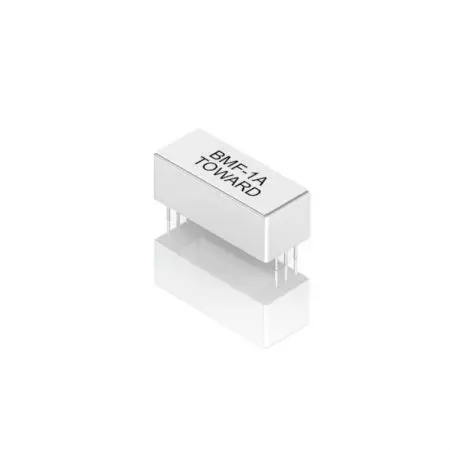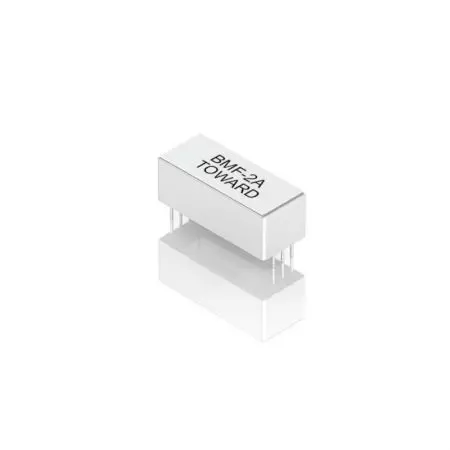Thermal EMF in Relays – What It Is and Why Low Thermal EMF Reed Relays Matter
Understanding Thermal EMF
In most everyday circuits, this offset is negligible. However, in sensitive applications like precision test equipment, even a few microvolts of error can significantly affect measurement results.
How Thermal EMF Affects Reed Relays
These thermal offsets can:
- Disrupt low-level signal integrity
- Cause measurement drift over time
- Reduce repeatability in automated testing
- Increase the need for recalibration and correction
For engineers working with precision instrumentation, choosing a low thermal EMF relay is key to ensuring consistent performance.
TOWARD’s BMF Series: Built for Ultra-Low Thermal EMF Performance
BMF Series | Technical Highlights
- Thermal EMF:< 0.5 μV
- Switching Voltage: 200 V
- Switching Current: 0.5 A
- Contact Rating: 10 W
- Contact Resistance:< 150 mΩ
- Operate Time:< 1.5 ms
- Release Time:< 0.5 ms
- Contact Capacitance: 0.5 pF
**Note: Specifications are typical values. For full datasheet details, please consult TOWARD’s technical team
Where Low Thermal EMF Matters Most
- Digital Multimeters (DMMs)
- Data Acquisition Systems (DAQs)
- High-precision laboratory instruments
- Semiconductor automated test systems
- Calibration and metrology equipment
- Related Products
10W/700V/ 1.5A Reed Relay
BMF-1A**-* Series
This reed relay comes in a 1 Form A contact arrangement. With breakdown voltage at 700VDC,...
Details Add to List10W/350V/1.5A Reed Relay
BMF-2A**-* Series
This reed relay comes in a 2 Form A contact arrangment, with carry current at 1.5Amps, it can load...
Details Add to List


